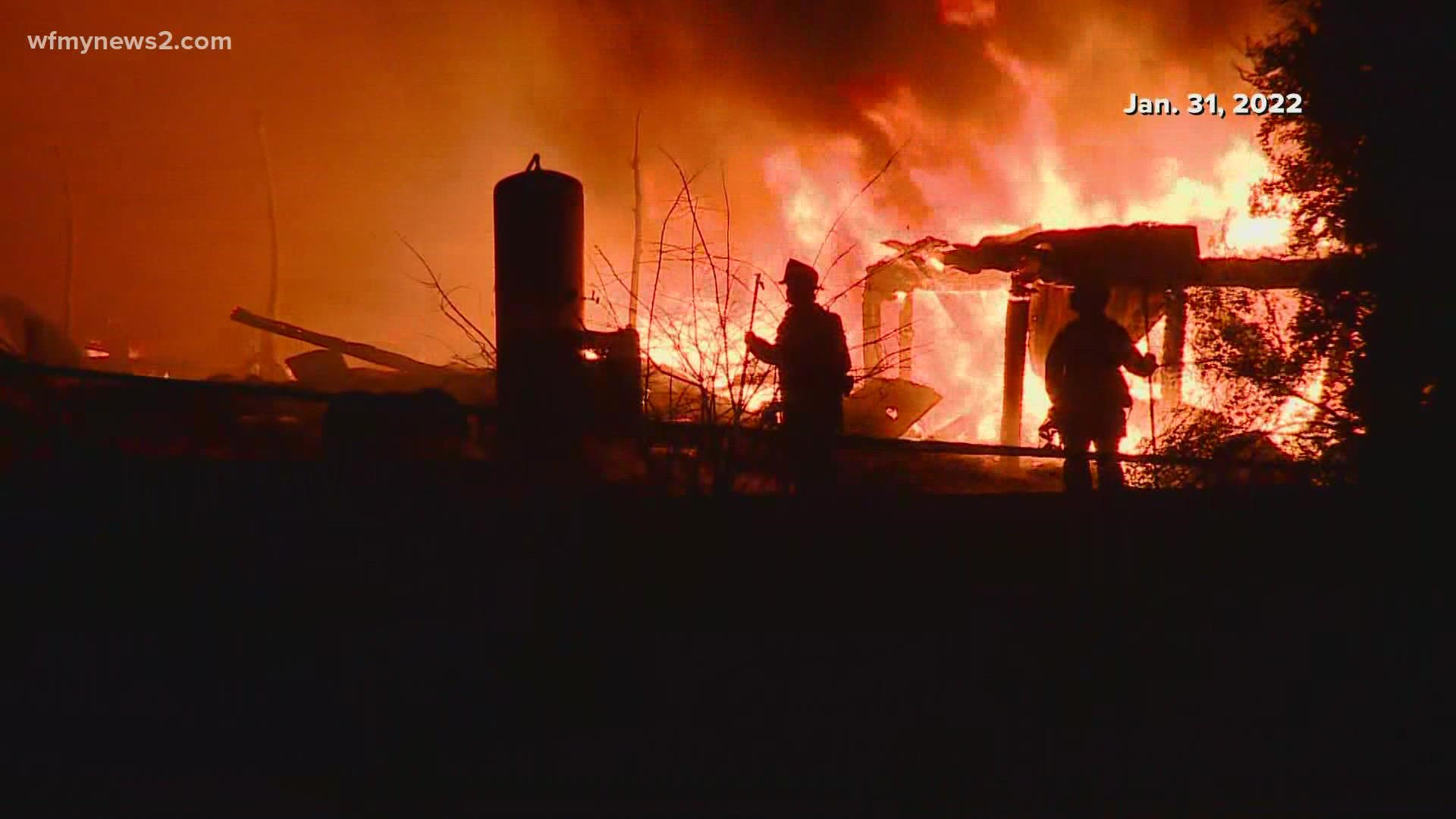WINSTON-SALEM, N.C. — Questions linger as the chemical fire at the Weaver fertilizer plant in Winston-Salem continues burning.
Thousands are displaced. Winston-Salem Fire Chief Trey Mayo said Tuesday that this has the potential to turn into the worst explosion in U.S. history.
We dug into some of the top questions we've gotten from viewers to try to help you make sense of the evolving situation.
Why can't firefighters drop water on the plant from the sky?
Firefighters can't enter the one-mile evacuation zone until officials say it is safe. Right now, thousands of residents have to leave homes, and businesses had to shut their doors because of the nitrous oxide and sulfur in the air.
One viewer asked us "can a helicopter bring water and drop it?"
Experts say that's not safe.
"It's not a normal fire that you can spray water and reduce the temperature," Dr. Zerihun Assefa, chair of North Carolina A&T State University's chemistry department said. "In this case, noxious gases are being produced. The community needs to be away from that area."
Assefa said spraying a lot of water on the fire would make the air more toxic. He said it could make the situation more volatile than it already is.
Another viewer had a follow-up question. She wondered what would happen with rain expected Thursday and Friday.
Mayo said a little bit of rain isn't something to worry about.
"Rain is sort of a breakeven proposition," Mayo said. "It creates runoff, but it also creates some dilution of products that are running off. We're going to take the rain as generally a positive."
What makes ammonium nitrate so dangerous?
Several viewers have asked why the ammonium nitrate in the plant is causing so much concern and why it's not categorized as a hazardous material.
Assefa said ammonium nitrate on its own is a stable compound and not a problem. However, it's an oxidizer. That means it can provide oxygen to other flammable compounds.
Ammonium nitrate was part of the massive 2013 explosion at a plant in Texas.15 people died. More than 200 were injured. 150 buildings were destroyed.
"The fertilizer plant is not worth losing one life. Get those people out," McLennan County Sheriff Parnell McNamara, one of the responding officers to the West Texas fire, said. "Let this thing burn itself out. If we had done that here, 15 people would be alive. The devastation is just tremendous."
Winston-Salem fire says the weaver plant has more than twice the amount of ammonium nitrate as the facility in Texas.
Is one mile a large enough evacuation zone?
Nearly 6,500 people live within the evacuation zone. Viewers on the outside of it are concerned if they need to leave too.
When the city asked residents to evacuate, they hoped they could let them return to their homes 48 hours later. However, Mayo said he expects to extend that recommendation beyond Wednesday at 7 p.m.
At a briefing Wednesday, Mayo said officials have consulted with experts from the Environmental Protection Agency since the fire started. All of them agree that a one-mile radius is good enough. People on the outside do not need to leave their homes.
Mayo continued to stress that anyone who has not left the evacuation zone should do so as soon as possible. It is still not safe.
How bad is the air quality?
Air quality through Forsyth County has gotten worse even in areas not within the evacuation zone.
The Forsyth County Office of Environmental Assistance and Protection released a statement Wednesday morning.
It read: "A smoke plume from the fire will continue to impact local air quality until the fire is extinguished. The area of impact will shift with anticipated changes in wind direction. FCEAP recommends avoiding outdoor activity in and near the smoke plume, especially children, and adults with compromised respiratory conditions including asthma and COPD. FCEAP will provide updates, as needed, until local impacts to air quality subside."
City officials and experts suggest people who go outside wear a mask to filter out any smoke or fumes in the area. Dr. Jill Ohar, a pulmonology professor from Wake Forest's School of Medicine, said grab the best one you can find.
"Cloth masks are not nearly as good as a basic surgical mask, which is not nearly as good as an N95.
Continue to send us your questions. You can reach out on social media or text us at 336-379-5775. We'll find an expert to get you all the information you need to stay safe.

